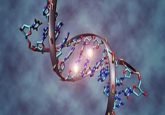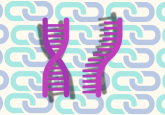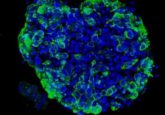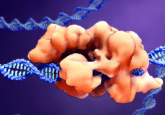Forget-me-not: scientists uncover how epigenetic memories are lost in plants

Researchers demonstrate how epigenetic memories in plants are completely lost in plant sperm cells.
Just like us, plants possess memories. However, in plants, this retention of information, known as ‘epigenetic memory’, occurs through modifications to histones, proteins that package and order DNA. Now, an international research team has dug deeper into plants memory to provide more information on this process.
The teams research focused on a specific histone modification, H3K27me3, that is known to mark genes that are turned off. In cold conditions, H3K27me3 will accumulate at genes that regulate flowering.
Previous work from the lab of Frédéric Berger (Austrian Academy of Sciences, Vienna, Austria), senior author on the current paper, has demonstrated how H3K27me3 is then transmitted from cell to cell so that when Winter ends, plants will remember that it was cold previously, encouraging them to flower at the right time.
However, as important as it is for plants to remember the cold and flower, it is equally important for seeds to forget the cold to prevent premature flowering. In this current study, published in Nature Cell Biology, the researchers investigate how plants go about forgetting epigenetic memories in seeds.
 Cross-discipline collaboration creates new chemistry to cure crops
Cross-discipline collaboration creates new chemistry to cure crops
Scientists are targeting the mitochondria in the continuing fight against fungicide-resistant, fungal crop diseases.
Hypothesizing that the process of forgetting would occur in the embedded sperm, the researchers analyzed histones present in pollen. This hypothesis was formed on the basis that seeds usually spread and grow close to the mother plant, so it would be more logical for seeds to forget their father’s environment but remember their mother’s.
Through their analyses, the researchers discovered that H3K27me3 disappeared entirely in sperm due to the accumulation of a histone in sperm that is unable to carry H3K27me3. This process – known as ‘epigenetic resetting’ – removes H3K27me3 from hundreds of genes to prevent flowering as well as control other important functions in genes.
“Like plants, animals also erase this epigenetic memory in sperm, but they do it by replacing histones with a completely different protein. This is one of the first examples of how a specialized histone variant can help reprogram and reset a single epigenetic mark while leaving others untouched,” Berger explained. “There are many more unstudied histone variants in both plants and animals, and we expect that aspects of this resetting mechanism we have discovered will be found in other organisms and developmental contexts.”





